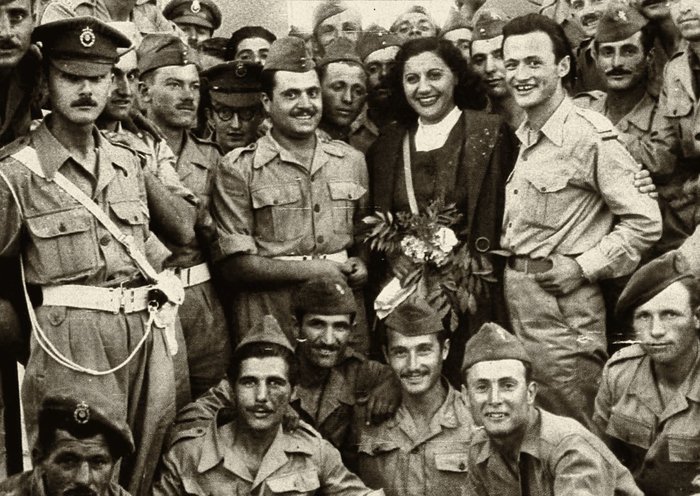Sofia Vembo was a leading Greek singer and actress active from the interwar period to the early postwar years and the 1950s. She became best known for her performance of patriotic songs during the Greco-Italian War, when she was dubbed the “Singer of Victory.”
Early and Personal Life:
Sofia Vembo, who’s real name was Efi Bembou, was born on February 10, 1910 in Gallipoli, Eastern Thrace. After the Asia Minor catastrophe, her family moved to Tsaritsani in the prefecture of Larissa and then to Volos, where her parents worked as tobacco workers.
She started her artistic career by chance in 1930, singing in a patisserie in Thessaloniki to contribute financially to her home.
Three years later, Sofia went to Athens where she was hired by businessman, Fotis Samartzis, from the Kentrikon theatre to participate in the revue “Parrot 1933.”

At the same time, she signed her first contract with the Columbia record company, performing love songs of the time and due to her special bass voice, the recognition did not take long to come.
All these years, Sofia maintained a relationship with the writer and lyricist, Mimi Traiforos, and finally married him in 1957.
Greco-Italian War and Theatre Work:
With the declaration of the Greco-Italian war in 1940, Sofia became a major inspiration to Greek soldiers at the battlefront with her performances of patriotic and satirical songs. At the same time, she offered 2,000 gold pounds from her own fortune to the Hellenic Navy.
Following the German invasion and occupation of Greece in April 1941, she was transported to the Middle East, where she continued to perform for the Greek troops in exile.
Sofia became a heroic symbol of the nation and was described as the “Singer of Victory.”

After the war in 1949, she acquired her own theatre, the ‘Vembo Theatre,’ in the Metaxourgeio neighbourhood of Athens. At the same time, she laid the foundations of a new era for Greek song – “archontorebetiko.”
In 1959, Sofia starred in the movie “Stournara 288,” where she plays a famous singer who was forgotten by her fans and worked as a piano teacher. She later acted in the 1955 classic, “Stella,” and “Prosfygopoula” in 1938.
During the 1960s, she began to perform less and less, before finally retiring in the early 1970s.
In the period 1967-1974, she participated in the anti-dictatorship struggle. On the night of the Polytechnic Uprising, she opened her house and hid students, whom she refused to hand over when security knocked on her door.
Death and Legacy:
Sofia died on March 11, 1978 and her funeral turned into a rally.
Because of her role in the war and her efforts during the Axis occupation, she was awarded the rank of Major in the Greek Army.
Source: San Simera.

